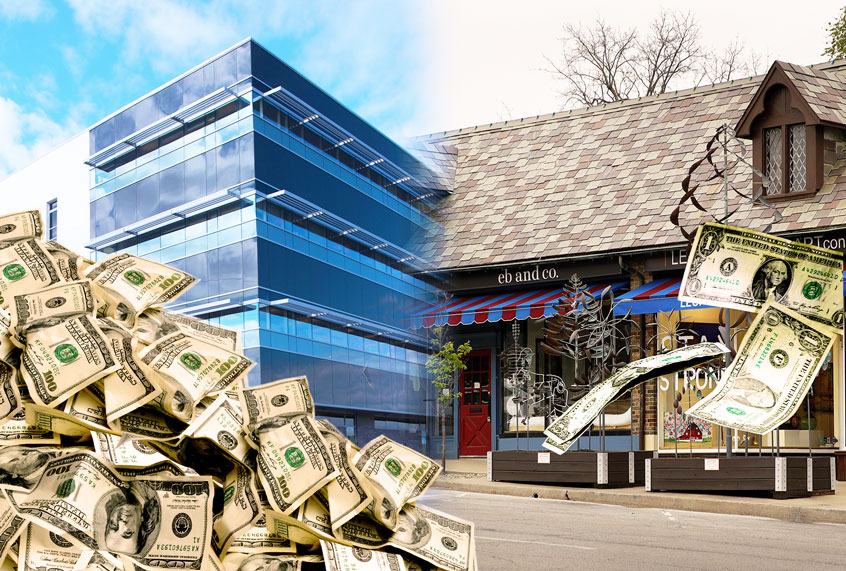Multiple new lawsuits allege that financial giants responsible for doling out billions in small business relief “prioritized” large corporate clients for the loans after dozens of publicly traded firms received aid before the program ran out of funding.
The Paycheck Protection Program, a $349 billion fund for emergency loans to small businesses that would be forgiven if they keep their employees, ran out of money last week after banks backed by the Small Business Administration (SBA) processed about 1.6 million loans in a matter of days. But not all of the money went to “small” businesses after lawmakers added a provision allowing companies with more than 500 employees to qualify if they met certain criteria.
About 75 publicly traded companies, some with market values of more than $100 million, received a combined $300 million in loans from the program, according to the Associated Press. Eight of the companies received $10 million apiece, the maximum loan amount.
Data previously released by the SBA show that 4,400 companies received loans of $5 million or more, though the national average was $206,000.
Reports that big restaurant chains like Shake Shack, Ruth’s Chris Steak House, Potbelly and Taco Cabana received $10 million apiece in loans sparked backlash. Shake Shack, which had more than $100 million in the bank, said it will return the loan.
The news drew multiple class-action lawsuits from small businesses, who argue the banks “prioritized corporate greed” by putting large clients ahead of smaller companies. Two lawsuits were filed against JPMorgan Chase and separate lawsuits were filed against Bank of America and Wells Fargo, all in the Central District of California, according to the New York Times.
The SBA provided the loans on a first-come, first-serve basis but banks were given wide latitude to process the applications. Bank of America, for example, rejected applications from small businesses that had received previous loans or credit from other banks. A judge ruled earlier this month that the practice did not run afoul of the program’s rules, but these new lawsuits allege that banks also set aside applications that had not rejected to process at a later time — and then the funding ran out.
“Chase concealed from the public that it was reshuffling the PPP applications it received and prioritizing the applications that would make the bank the most money,” said one of the suits against the bank.
“It was supposed to be first come, first serve, but when you look at the statistics it seems clear that JPMorgan served its biggest clients first,” Lou Rabon, the chief executive of a security consulting firm who is the lead plaintiff in the lawsuit, told CBS News. “When your bank is not there when you really need them, that’s not a bank we want to do business with.”
A spokesperson for the bank told the outlet that it did process the loans on a first-come, first-serve basis but different divisions processed applications for existing clients. The commercial bank was able to process all of the thousands of applications it received while small business bankers were only able to process a fraction of the applications that division received.
“JPMorgan’s explanation falls short of what the law and civic responsibility requires,” Rabon’s attorney Dylan Ruga told CBS. “The PPP program was intended to help small business keep the lights on, and it was supposed to be first come, first serve. This is just another instance of a program that was meant for Main Street being hijacked by Wall Street.”
A spokesperson for Bank of America denied that it sought to maximize profits by prioritizing corporate clients. A spokesperson for Wells Fargo said the bank is “is working as quickly as possible to assist small business customers with the Paycheck Protection Program in compliance with the regulations and guidance provided by the U.S. Treasury and the SBA.”
Lawmakers on both sides of the aisle criticized the program for allowing large companies to take advantage of money intended to help smaller firms.
“I am concerned that many businesses with thousands of employees have found loopholes to qualify for these loans meant for small businesses. Unfortunately, when it comes to the PPP, millions of dollars are being wasted,” Sen. Rick Scott, R-Fla., told CNN. “Right now, companies that are not being harmed at all by the Coronavirus crisis have the ability to receive taxpayer-funded loans that can be forgiven. That’s wrong, and it takes money out of the hands of those Americans who really need it.”
Scott also criticized the banks for setting application requirements that were not authorized by Congress.
“I have heard from many constituents that they are unable to access the loans at their bank because of requirements individual banks are setting,” he said. “These requirements were not in the law and are leading to many small businesses having a very hard time accessing these dollars. Congress must make it clear that banks should not and cannot set these requirements that actively withhold help from those in need.”
Congress is expected to approve a second round of funding for the program as early as Tuesday after negotiations dragged on over proposed restrictions on the aid.
Rep. Ted Lieu, D-Calif., urged Scott to take the issue up with the Trump administration and Republican leadership.
“Can you tell [the Trump] Administration and [Senate Majority Leader Mitch] McConnell to stop trying to jam through PPP funding without changes to the law?” he asked. “This is one reason Dems blocked a clean PPP; we need to first make it better before refunding it.”

